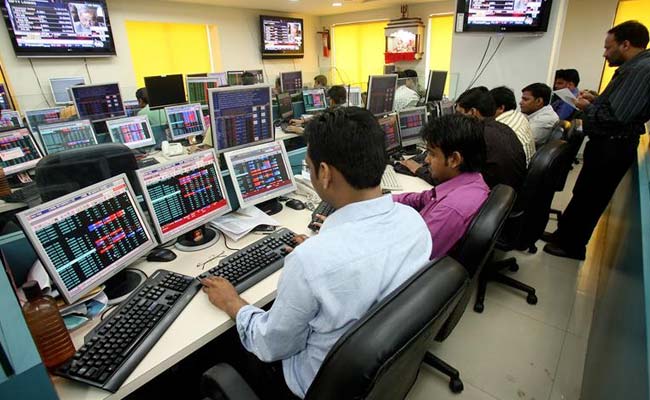Sensex and Nifty suffered a big selloff today, a day after Finance Minister Arun Jaitley unveiled Union Budget 2018-19. A higher-than-expected fiscal deficit target for 2018-19 and imposition of new long-term capital gains tax on equities hurt the market sentiment, say experts. The BSE benchmark index Sensex closed 839 points lower at 35,066, while NSE Nifty settled at 10,760. This is the biggest percentage loss for Sensex in a single day since November 2016, when it fell 2.5 per cent. Weak global markets also hurt the domestic equities. Yields on 10-year US Treasuries jumped to a near four-year peak, sparking a selloff in other Asian markets.
10 Things To Know About Sensex, Nifty Trade Today:
- Midcap and smallcap stocks cracked today, with the BSE midcap and smallcap ending 4-4.6 per cent lower. The correction in broader markets had started before the Budget due to lofty valuations and today's weak market sentiment accelerated the selloff, analysts said.
- Banking, energy, auto and capital goods stocks led the the decline in domestic markets. Among the Nifty50 stocks, Bajaj Finance, Bajaj Auto, UltraTech Cement, Axis Bank and HPCL were the top losers, closing 4.5-6 per cent lower. A higher-than-expected fiscal deficit target for 2018-19 in Budget also hurt the market sentiment though some experts welcomed spending in key areas of the slowing economy.
- Mr Jaitley set the government's fiscal deficit at 3.3 per cent of gross domestic product for the 2018/19 fiscal year, higher than market expectations of 3.2 per cent.
- The finance minister also announced a new capital gains tax on long-term equity investments.
- Currently, there is no tax on capital gains on equities if the investments are held for more than a year.
- The imposition of a long-term capital gains tax (LGCT) also raised concerns about whether it would deter foreign investors. Overseas funds have injected $94 billion into Indian stock and debt markets since the start of 2014.
- "Foreign institutional investors would have additional compliance since now they would have to pay (LGCT) tax," said Amit Maheshwari, managing partner at tax advisory firm Ashok Maheshwary & Associates.
- On the other hand, some analysts say the rural focus in the Budget will help to spur growth. "Better forecasts for tax collection, rural spend, GDP growth and job creation are the positives of this budget which is expected to retain the sentiment in the market," said Vinod Nair, head of research, Geojit Financial Services.
- The next trigger for markets is the RBI's policy review due next week. The central bank is due to hold its next policy review on February 6-7 amid worries it could turn more hawkish on inflation after inflation hit a 17-month high in December, well above its 4 per cent target.
- Global stock markets have been jumpy in past few sessions over the likelihood of rising inflation and high stock valuations after a euphoric January in markets. Global central banks have recently struck a more hawkish tone with impressive economic data and buoyant oil prices driving up long-term inflation expectations.
Comments





